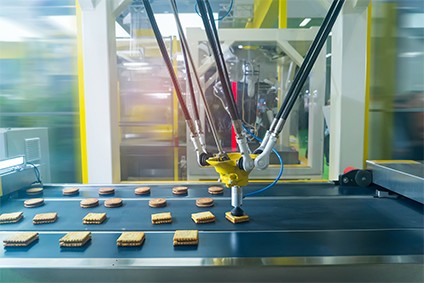Introduction
In today's swiftly advancing food sector, organizations are looking for sustainable services to meet the growing need for quality foodstuff while minimizing their ecological influence. Contract food manufacturing has actually emerged as a feasible alternative for firms seeking to outsource their manufacturing requires while maintaining control over product growth and also quality assurance. This article explores the concept of contract food manufacturing in Australia as well as its duty in promoting sustainability within the food industry.
The Surge of Contract Food Manufacturing in Australia
Understanding Agreement Food Manufacturing
Contract food production is a critical collaboration in between a brand owner as well as a contract supplier, where the last produces products on behalf of the previous. This arrangement allows brand name owners to focus on advertising, item development, and also distribution while leveraging the expertise as well as sources of specialized agreement manufacturers.

Benefits of Agreement Food Manufacturing
Cost Effectiveness: Contract food manufacturing removes the requirement for considerable capital investments in infrastructure, devices, as well as manpower. This cost-saving step permits brands to assign their sources in the direction of various other critical areas of organization growth. Scalability: As demand for a specific product fluctuates, agreement suppliers can rapidly change production degrees to suit market needs. This adaptability makes sure that brands can satisfy customer demand without excess supply or wastage. Expertise and Innovation: Agreement makers typically have comprehensive knowledge and also experience in specific food classifications or processes. By teaming up with these professionals, brand names can use their creativity as well as harness innovative options for product advancement as well as improvement. Quality Guarantee: With strict quality assurance steps in place, agreement suppliers adhere to sector criteria and regulative demands. This dedication to excellence guarantees that brands supply secure and high-quality products to consumers consistently. Supply Chain Management: Contract food manufacturing improves the supply chain by consolidating manufacturing, product packaging, labeling, and also distribution under one roof covering. This integrated approach reduces logistical complexities and improves total operational efficiency.The Ecological Effect of Contract Food Manufacturing
Reducing Carbon Footprint
Contract food production uses chances to minimize the environmental effect of food production through numerous methods:
Efficient Source Use: Agreement manufacturers enhance source intake by applying energy-saving techniques, reducing water usage, and also decreasing waste generation. These lasting steps contribute to a reduced carbon footprint across the whole manufacturing process. Locally Sourced Components: By sourcing components from neighborhood providers, agreement suppliers minimize transport ranges and also linked exhausts. This technique supports regional economies while advertising sustainability within the supply chain. Eco-Friendly Packaging: Contract food makers emphasize using green packaging products, such as biodegradable or recyclable choices. This dedication to lasting packaging reduces waste and fosters responsible consumption.Embracing Eco-friendly Energy
Contract food producing facilities in Australia are progressively embracing renewable energy sources to power their operations. Photovoltaic panel, wind generators, and other clean power services help in reducing reliance on fossil fuels and contribute to a greener future for the industry.

Addressing Sustainability Obstacles in Contract Food Manufacturing
Waste Management and also Reusing Initiatives
Contract food producers prioritize waste monitoring through thorough recycling programs and waste reduction methods. By implementing reliable waste partition systems, firms can divert significant quantities of waste from land fills as well as promote a round economy.
Water Conservation Measures
Water scarcity is an international problem, as well as contract food producers play their component in addressing this challenge. Companies purchase water-saving modern technologies, such as innovative purification systems and contract manufacturer water reuse initiatives, to reduce their freshwater consumption.
Collaboration with Lasting Suppliers
Contract food makers proactively seek partnerships with distributors committed to lasting techniques. By focusing on eco aware providers, these business ensure that their whole supply chain straightens with sustainability goals.
FAQs
What is contract food manufacturing? Contract food manufacturing describes the outsourcing of food production to specialized manufacturers who generate items in support of brand name owners.

How can contract food manufacturing benefit businesses? Contract food manufacturing offers expense effectiveness, scalability, experience, and quality assurance to brands wanting to concentrate on marketing as well as distribution.
How does contract food manufacturing advertise sustainability? By maximizing resource application, embracing renewable energy, as well as applying waste monitoring and also reusing campaigns, contract food manufacturing lowers its environmental impact.
What are some sustainable product packaging alternatives in contract food manufacturing? Environmentally friendly product packaging materials such as biodegradable or recyclable alternatives are generally made use of in contract food manufacturing to reduce waste.
How do agreement food makers preserve water? Contract food makers invest in water-saving modern technologies and execute water reuse initiatives to minimize their freshwater consumption.
What function does collaboration with lasting suppliers play in contract food manufacturing? By partnering with ecologically mindful providers, contract food manufacturers ensure that their entire supply chain aligns with sustainability goals.
Conclusion
Contract food manufacturing presents a sustainable remedy for services looking for to meet the expanding demand for quality food products while decreasing their ecological effect. By leveraging the proficiency of customized manufacturers as well as embracing environment-friendly practices, brand names can add to a greener future for the Australian food market. Welcoming sustainability not just benefits the environment but additionally improves brand online reputation and also customer rely on an increasingly mindful market.